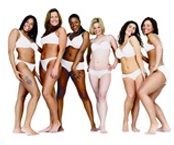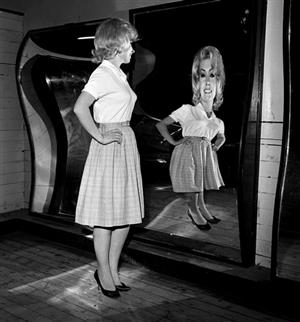MENTORING TIPS
For
many adolescents, the changes they’re going through - physically, emotionally,
intellectually, and socially - can be overwhelming and given the
media-saturated environments we now all live in, they receive so many
conflicting messages about who and what they should be. For girls, body image
and self-image is a critical issue. In 2011, Dove® released the findings of its
largest global study to date on women’s relationship with beauty, The
Real
Truth About Beauty:
Revisited. The study revealed that only 4%
of women around the world consider themselves beautiful and that anxiety about
looks begins at an early age. In a study of over 1,200 girls between the ages
of 10 to 17, a majority, 72%, said they felt tremendous pressure to be
beautiful. The study also found that only 11% of girls around the world feel
comfortable using the word beautiful to describe their looks, showing that
there is a universal increase in beauty pressure and a decrease in girls'
confidence as they grow older.

Mentoring relationships have the power to help a young woman as she may potentially be struggling with self-acceptance. These tips may be helpful for mentors whose mentees are beginning to talk about their bodies and social interactions. While it may seem more relevant for female mentees, it may be useful to review for all mentors, as male mentees are receiving the same messages and have expectations about the opposite gender.
Notice how your mentee talks about body image and self-acceptance. What does your mentee say about her own body? Does she make comments about other girls’ and women’s figures or clothing? Much of what is presented in the media about girls and women is unrealistic and unattainable: they must be tall, thin, model-beautiful, usually white or light-colored, and will put other females down to move ahead. The levels of subversiveness and sophistication of advertising and marketing has also increased, so these messages may not be as obvious as they may have been when you were her age. Ask your mentee to share what she is reading, watching, listening to and engaging with - you can learn a lot about the current level of media exposure and begin talking about these messages. Listen actively for subtle responses to these messages - is she paying attention to this representation of girls and women? Is she paying attention or getting support for other ways of thinking about being a female?
Emphasize the positive about health in your conversations. When you talk about body image and portrayals of women and girls, make sure that you’re emphasizing being healthy, taking care of yourself, and feeling comfortable in your own skin. It may take some time (and many conversations!), but you can provide an alternative voice to what it means to be a healthy and happy woman in our culture. Part of emphasizing the positive is decreasing the negative: don’t speak negatively about yourself or your image when you’re with your mentee and don’t talk about foods you shouldn’t be eating because you don’t want to put on weight. Instead, remember to talk about the beauty you see in your mentee and all of the non-physical positive attributes she has. Some questions you can ask:
- What do you like about yourself?
- What are your biggest strengths?
- How do you want to feel about your own
unique beauty?
- What can I do to help you feel
confident?
You
can also identify women in both your lives whom you admire for qualities that
are beautiful both inside and out. Talk about your choices and choose some new
additions based on your talks. Don’t forget to share your experiences and what
you have learned about being ok with yourself. It’s ok if you’re still working
on it, too; this level of honesty can deepen trust and rapport with your mentee.

Seek out positive activities to address healthy body image. Move beyond conversations and engage in activities that will help your mentee know through experience that it’s healthy to be active, eat well, and take care of herself as well as be a positive person. A great resource is the Eat Well Stay Healthy Have Fun Guide for Mentors from the Harvard Mentoring Project. You can also try some of the gender-specific ideas from the Dove Campaign for Real Beauty, like a Self-Esteem Scavenger Hunt, Boost Book, Positive Playlist, or New Moves & Grooves. Together, check out the Love Your Body, Change Your World Action Kit from Girls for A Change. You can also view films or read books that attempt to deconstruct negative media messages. One suggestion is Miss Representation (2012); you can view the trailers for online or seek out or even sponsor a screening in your community. Your program may also have connections with others who provide workshops or consultation in this area; be sure to check with them for possible activity ideas.
Talk to your program coordinator if your mentee’s responses seem extreme. If your mentee’s views, values, or habits seem extreme or exceptionally unhealthy, talk with your program coordinator for more advice and resources. Too many girls and women in our culture experience eating disorders and body dysmorphia; if it seems like your mentee is headed in this direction, consulting with a professional may help and the earlier, the better.
http://www.friendsforyouth.org/MentoringInstitute.html At this website is more information, especially about resources and online training.

No comments:
Post a Comment